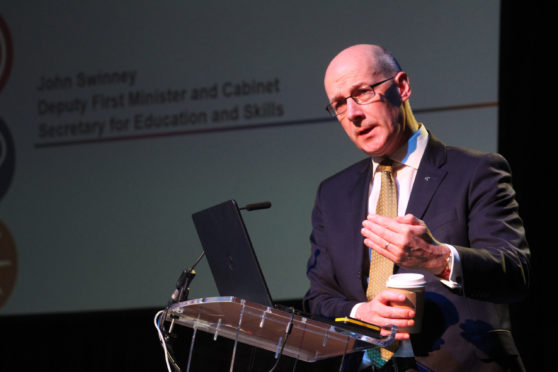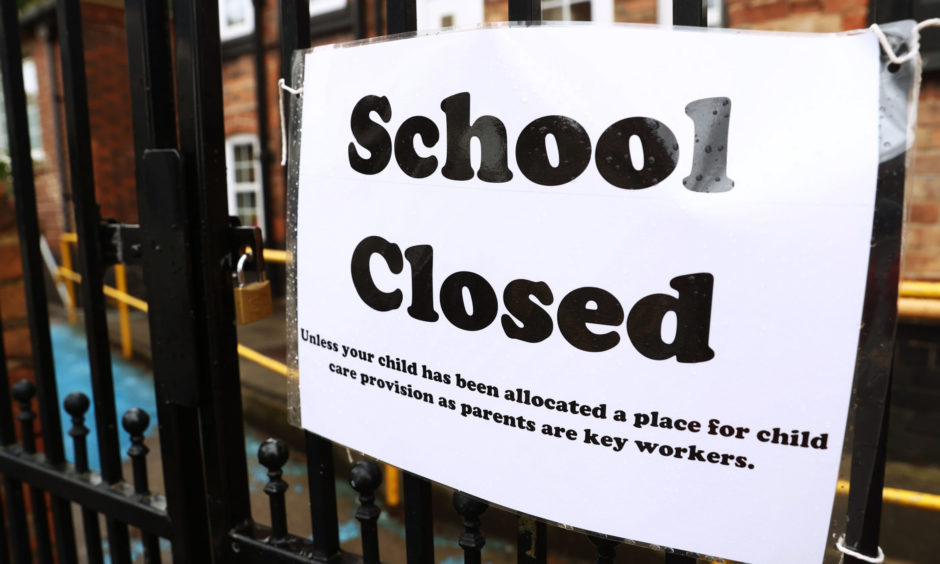Pupils in Scotland should return to classes for at least half the working week after the summer break but there is still no guarantee exams will go ahead next year, the education secretary has said.
John Swinney said he expects children to spend as close as possible to half their time in school when classes resume in August and a “clear rationale” will be required for any local authorities that fail to meet the target.
He also admitted some pupils may have more “face to face” time with teachers than others when the new “blended” schooling model gets under way.
The deputy first minister made the comments at a meeting of the Scottish Parliament’s Education and Skills Committee on Friday but stressed in some cases, where appropriate, particular schools may exceed the 50% target.
It comes following reports some local authorities are planning to have pupils return to the classroom for as little as a third of the normal time.
Mr Swinney was challenged by Scottish Conservative education spokesman Jamie Greene, who said he has seen plans for some councils to have children return just two days a week when schools resume in August.
Mr Greene asked whether this level was “justified and proportionate” when scientific evidence suggest children are less likely to contract Covid-19 than adults.
Mr Swinney said: “We have to be careful here because what I do accept is that there is a question of proportionate judgement and I would like to see the level of schooling as close to 50% as I possibly can get it, that would be my ideal situation.
“I accept in some circumstances that will not be possible but in circumstances where that is not possible, there has to be a very, very clear rationale based on the number of pupils and the physical layout of the school to justify such decisions being taken.
“I should also point out, of course, that in schools where there is a low occupancy, it may be possible to exceed 50% because there is, frankly, plenty of space for young people to be safely physically distanced within the schools.”
Mr Swinney said schooling levels will “vary around the country because there will be varying levels of school occupancy”.
“Given the variation in school occupancy, there will be schools in the country that will be able to offer more face to face schooling and more time in school for young people than others,” he added.
Mr Swinney also admitted he could not provide “absolute certainty” the 2021 Scottish Qualifications Authority (SQA) exams will go ahead, despite planning “proceeding as we speak” on that basis.
He stressed teachers should continue to gather evidence of their students’ progress in the coming year in case traditional exams cannot go ahead.

